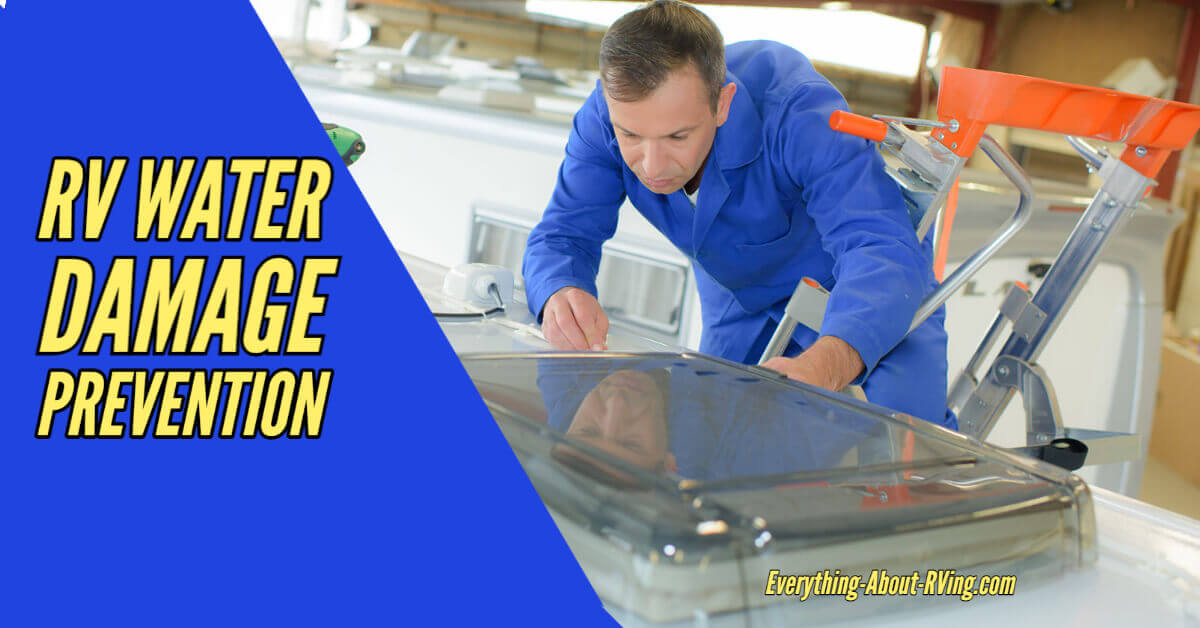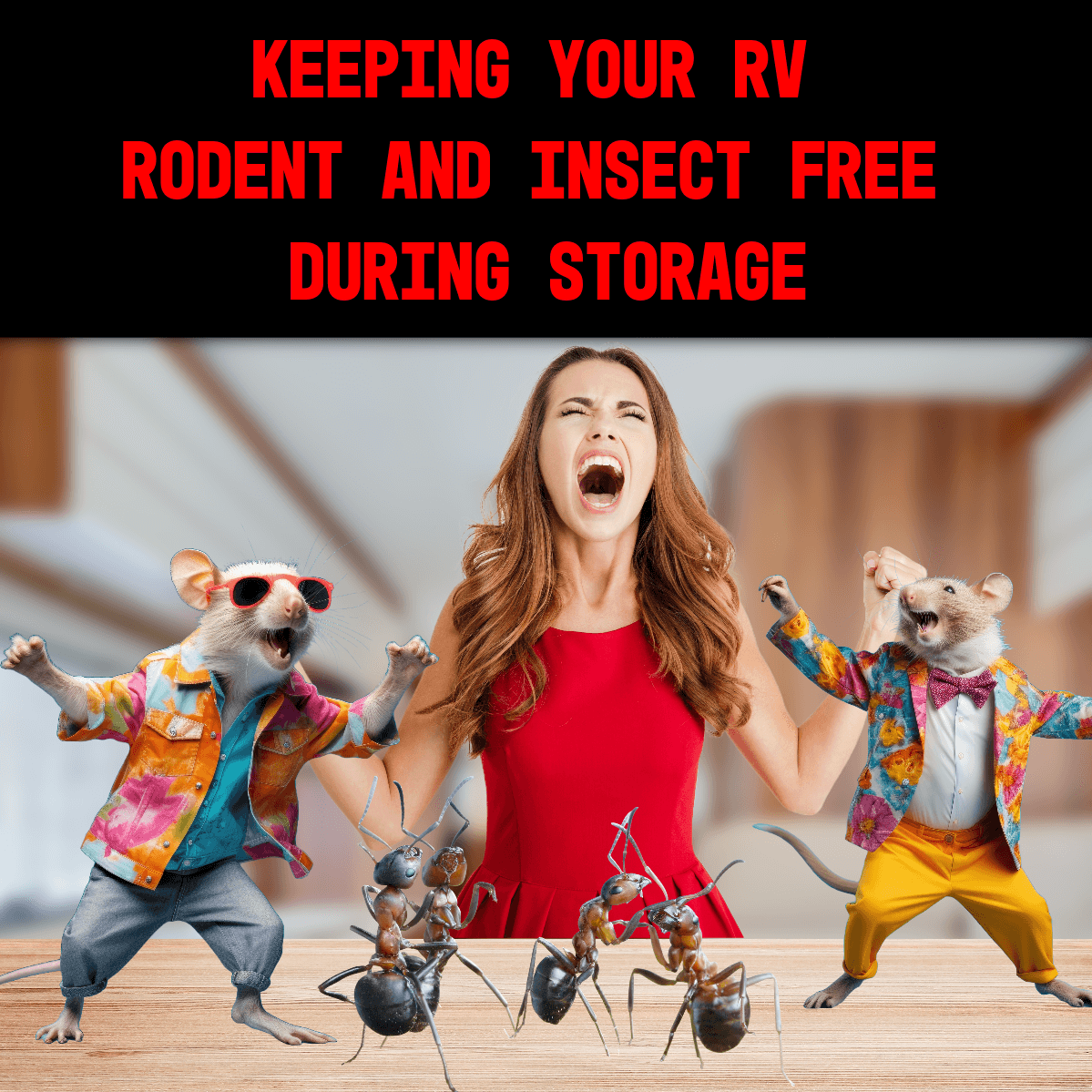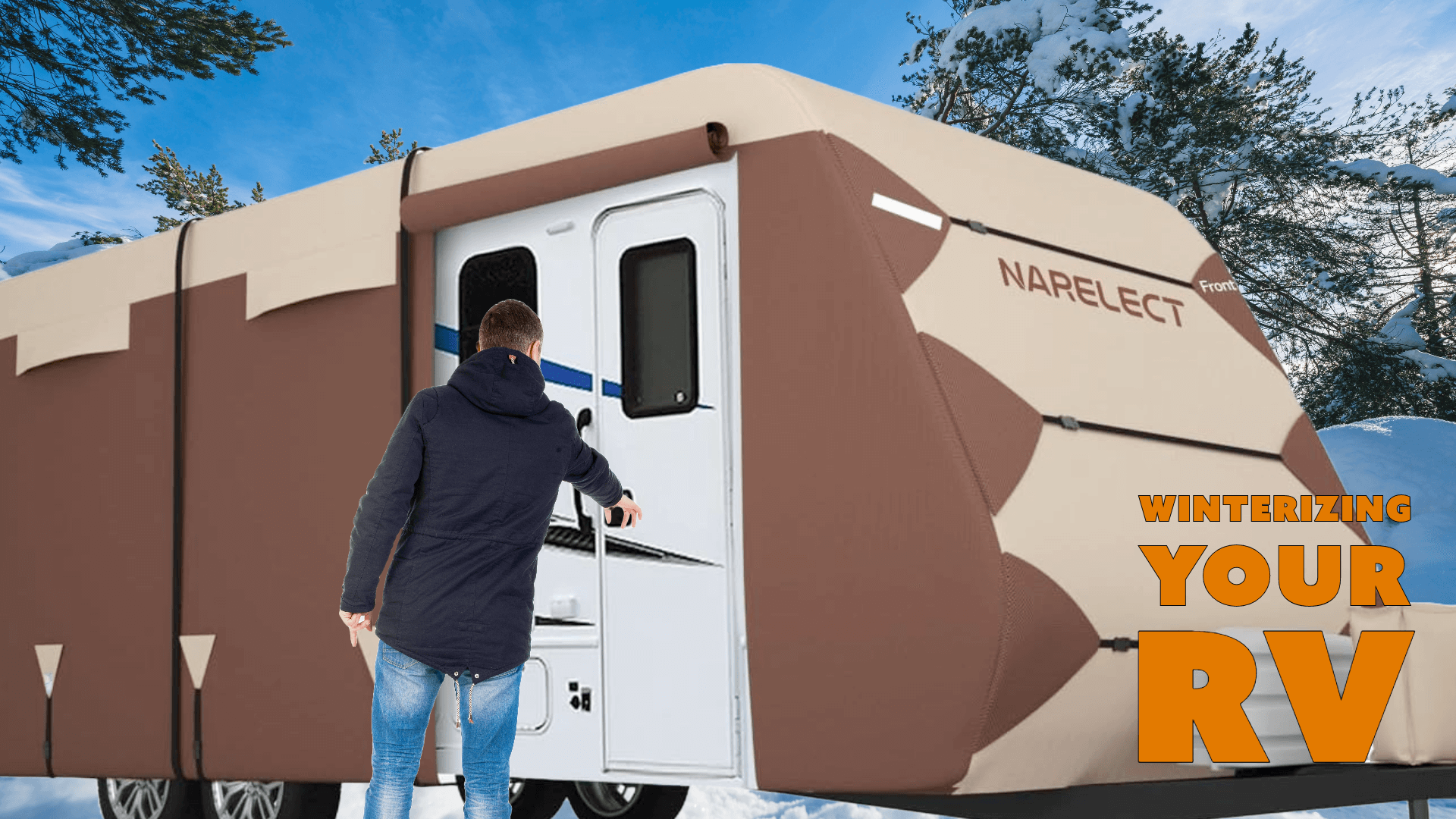- Home Page
- More RVing Tips & Tricks
- Rv Water Damage
RV Water Damage Prevention
Here are the steps you need to take now to prevent RV water damage
A recreational vehicle is essentially a house on wheels. Like a house, it is constantly exposed to the elements. You can protect it from the weather when it is not in use by covering it, but there is no way to avoid exposure to conditions of rain, sun, and wind when you are driving it or camping in it. To a certain extent, your RV is designed to resist the elements. Constant exposure could compromise it, but there are things you can do to protect your RV through regular maintenance.
Perform Frequent Inspections
If there is a leak in your RV or it gets flooded, it may be possible to reverse the effects with water damage restoration. However, it is vastly preferable to avoid the damage in the first place, and one way to prevent it is by performing frequent inspections of your RV to look for any flaws that could cause water to get in. Pay particular attention to any seams as these are frequent sites where water can get in and cause leaks. Seams are the places where different parts of your RV are joined together, such as the point where the roof meets the walls. The seals around vent covers should also be inspected. These areas are typically sealed with caulk, but over time, this can break down.
The roof isn't the only place where leaks can occur in your RV. Check the rubber membranes around the doors and windows as these can become cracked and brittle with time. Inspect your RV immediately for structural damage if you ever hit something, such as a rock or a tree branch.
Pay Particular Attention to the Roof
The roof of your RV provides the most protection from the elements, which means that you have to pay the most attention to it to keep it in good condition. Roof damage could occur if you misjudge the height of an overhang or a low-hanging branch and run into it. It could also happen if your RV gets hit by falling debris. Whatever the cause, you should inspect it for damage immediately and repair it as soon as possible. Using a specialized roof repair kit, you may be able to repair minor damage yourself. When in doubt, however, have a professional assess the damage and do the repair. It is better to pay to have it done right the first time than to mess up the job and have the roof leak on you before you can have it repaired.
Keep the RV Clean
Keeping your RV clean isn't just a matter of vanity. A transparent membrane covers the body to protect it from leaks. Dirt buildup can stain the membrane and potentially weaken it. Again, you need to pay particular attention to the roof because the buildup of dirt could thicken it. If this happens, it may be heavy enough to compromise the roof's structural integrity, which could lead to leaks.
Not all cleaning agents will work on RVs. Some can do even more damage than the water. Avoid any cleaners with abrasives, citrus ingredients, or petroleum solvents, as these can all damage vinyl or rubber. Stick to a mild dish soap or use a special type of cleaner.
Avoid Condensation
Water damage to RVs doesn't always come from leaks. It may also result from condensation. This occurs when water vapor inside the vehicle changes back into a liquid. You can avoid this by monitoring the humidity level inside your RV. If it is too high, you can ventilate your RV by leaving one roof vent open and cracking the window over your sink.
Conclusion
If your RV gets flooded, you can use a small dehumidifier to help dry it out. It may also be helpful to use a dehumidifier when your RV is in storage. If this is not possible, an alternative is to leave small containers around the RV's interior filled with charcoal briquettes.



